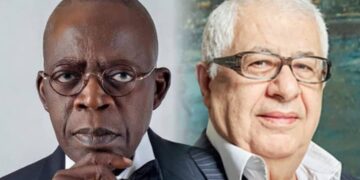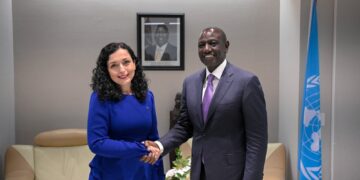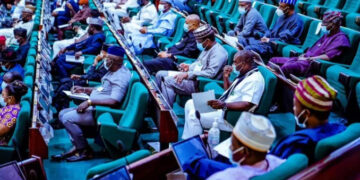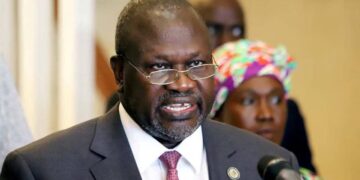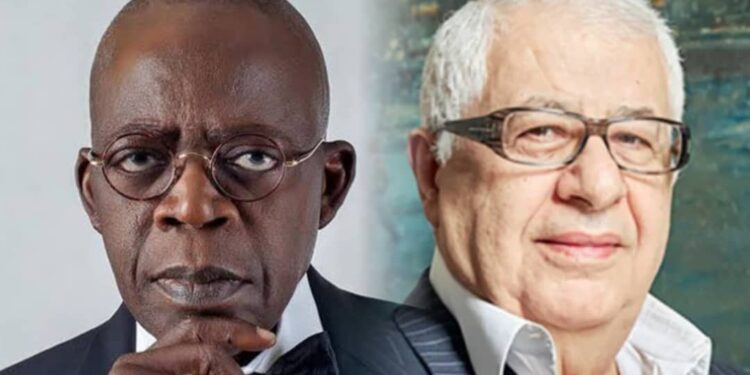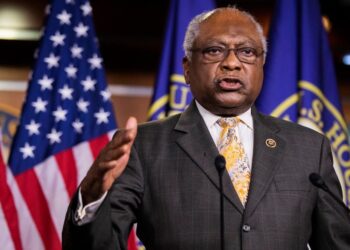By Emmanuel Nduka
Controversy is trailing last week’s approval by Nigeria’s federal cabinet for construction work on the second section of a $13 billion highway awarded to an ally of President Bola Tinubu.
Heritage Times HT reports that the project which has ignited a lash backs in Africa’s most populous country, was awarded to Hitech Construction Company Ltd., a business owned by tycoon Gilbert Chagoury, who was listed by the Nigerian government as Tinubu’s “confidante” in part of Nigeria’s delegation at last year’s COP28 climate conference in Dubai.
Transparency International, the global movement to end injustice and corruption has joined growing chorus of those mocking the controversial award of the contract for the construction of the Lagos-Calabar coastal highway.
“With the cost involved, you can see that it’s an inflated contract that has been given simply because some people believe that they will make money out of it,” said Auwal Rafsanjani, Nigerian head of Transparency International. Lack of transparency around Nigerian projects like this is “the reason why we are not making any progress in terms of improving transparency and accountability in public sector,” he added.
Since the award of the 700-kilometer (434 miles) project, the government has been forced to hold a series of public meetings, press conferences and speeches to defend the project, while surrogates have been sent to explain its position on television, Bloomberg reports.
Nigerian authorities have demolished dozens of houses and buildings, including sections of the popular Landmark beach complex in the Lagos district of Victoria Island. This has led to protests from businesses and residents in the area, home to many of Nigeria’s richest people, including the local headquarters of TotalEnergies SE and Standard Chartered Plc.
Bloomberg reports that 78-year-old Chagoury has been a fixture of Nigerian politics and business for decades. In 2000, he was convicted in Switzerland of laundering money for Sani Abacha, the notoriously corrupt Nigerian dictator, and has admitted to making illegal campaign contributions in the US. The Chagoury Group didn’t respond to a request for comment.
Hitech has built a number of major infrastructure projects, including the privately developed Banana Island luxury housing estate and the 10-square-mile Eko Atlantic development — both on land reclaimed from the sea. The firm has constructed two highways in Lagos that are 16 miles and 31 miles long, but critics question its capability for large-scale projects.
“We don’t feel like we caught the best deal. Because this whole project did not go through the Senate, did not go through the regular due process and we’re just being stuck with the bill that seems extremely overbloated,” Lagos opposition politician Gbadebo Rhodes-Vivour told Bloomberg on phone.
Shrouded In Secrecy
While the bidding process for the contract wasn’t conducted publicly, Nigeria’s Minster for Works, Dave Umahi ,told journalists that the government approved a “restrictive bidding” round for the project, without elaborating on what other companies were involved or why it wasn’t made public.
“People say it was not listed in the 2024 budget,” he said during a May 14 speech at the presidential villa in Abuja, the seventh time he has addressed the controversy around the highway since April. “Yesterday, I quoted the budget number and so everything about coastal road followed due process,” he added.
Corruption Perception Index ranks Nigeria among the world’s most graft-ridden countries. Since he assumed office, Tinubu has talked about enhancing transparency in government and vowed to fight corruption. In April, he described corruption, self-interest and fraud as “an enemy” of the country.
In reality, the task of completing the coastal road project will extend beyond Tinubu’s first term, and cost more than Nigeria’s 9-trillion naira budget deficit for this year.
The project was first designed as a railway under President Goodluck Jonathan and awarded to the China Civil Engineering Construction Corp. for $12 billion, but fell apart when he left office in 2015.
The following year, the plan was revived by President Muhammadu Buhari’s administration for $11 billion and given a timeline of three years, which expired without significant progress.
The Works Minister then announced the project had been resurrected once again, but as a coastal highway alongside some rail, and this time awarded to Chagoury’s Hitech.
